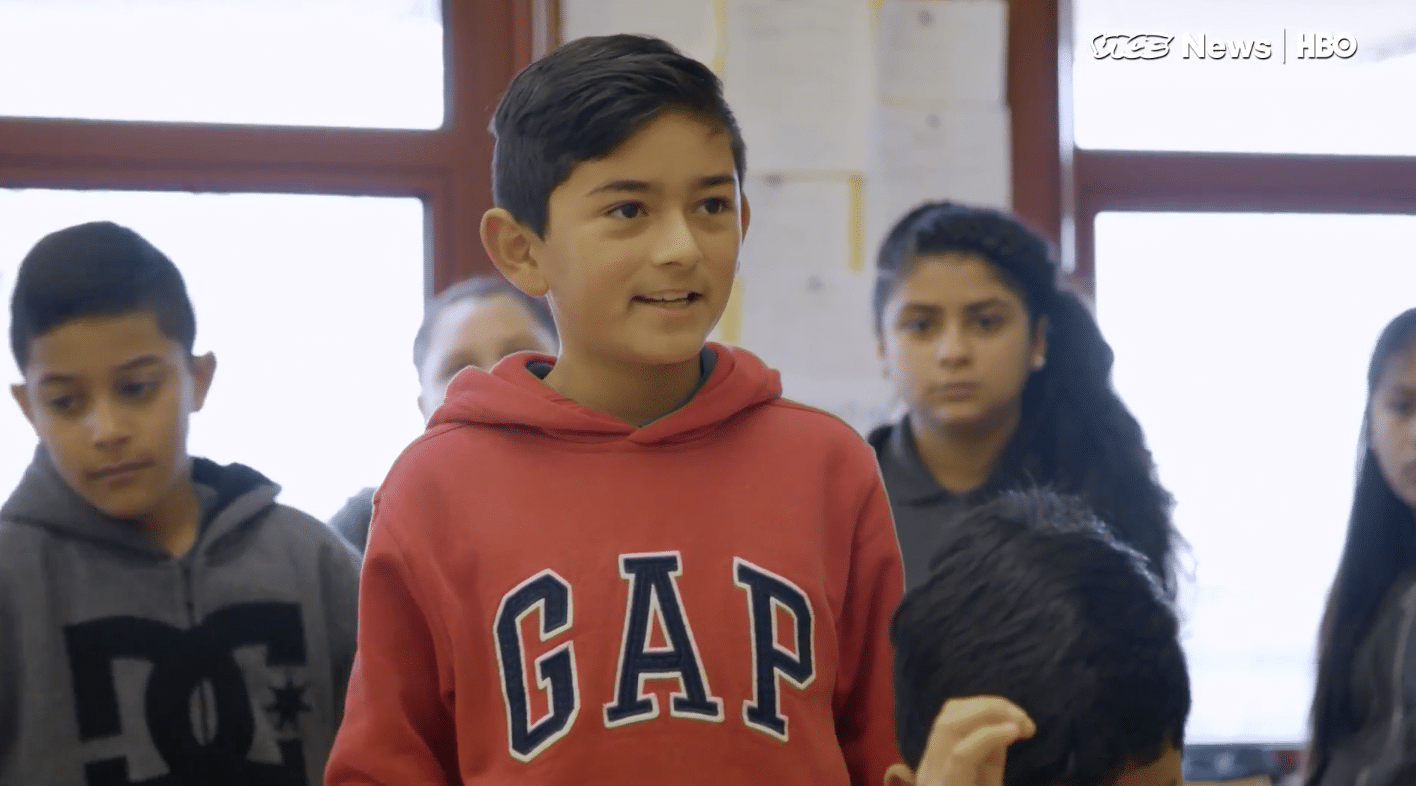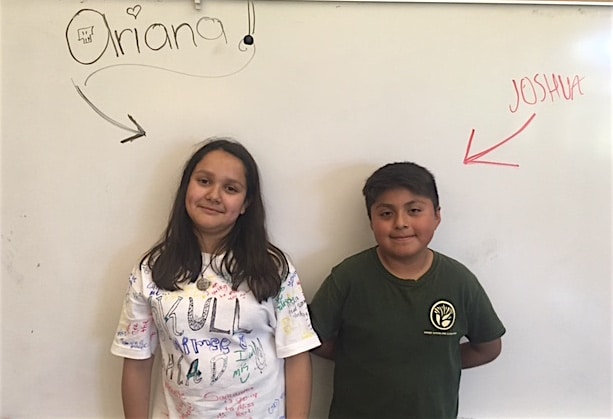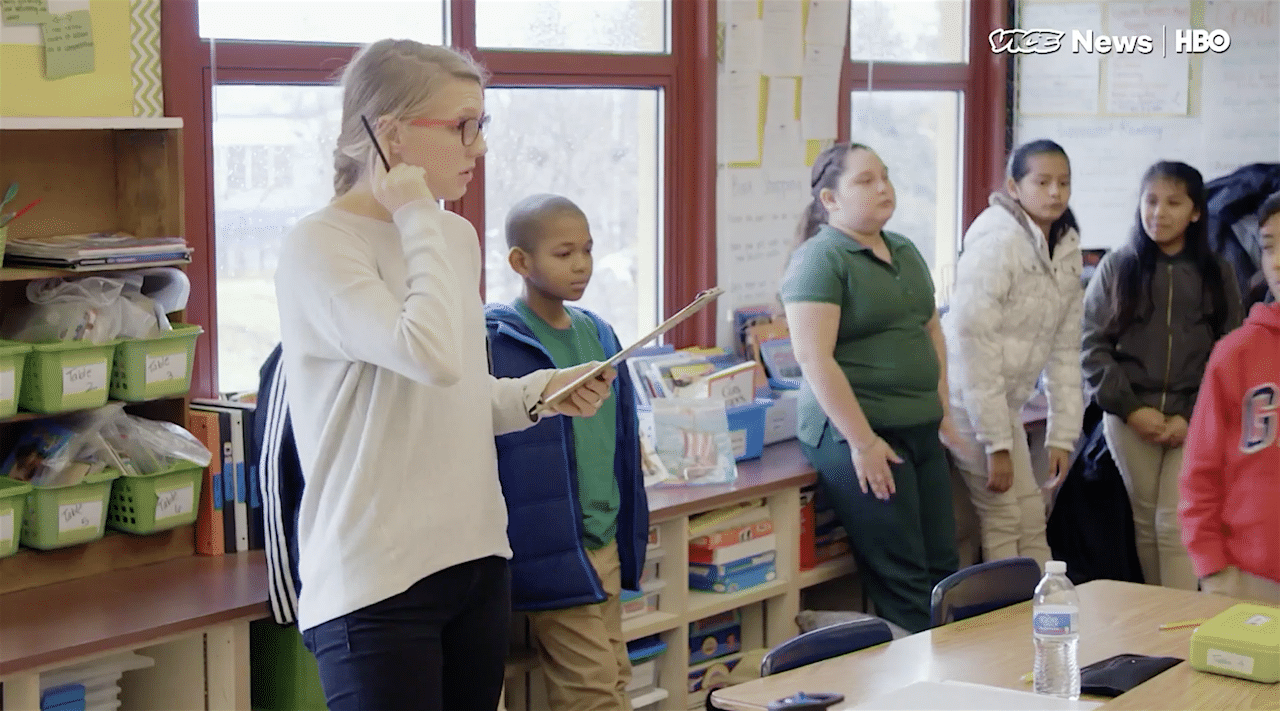
October is Ally Month at Acorn Woodland Elementary. Throughout the month, each classroom focuses on an area where they can build understanding and empathy.
“Grade-level partners build units around diversity in gender, diversity in religion, cyber bullying, LGBTQ rights, the different ways a family can look,” says 5th-grade teacher Kari Laux. “The spirit of those lessons is very alive year-round. Students take pride in being allies to each other and to younger students, and this extends to people they don’t know at all, who are being persecuted in their neighborhood or even in different parts of the world.”
As a student, what does it mean to be an ally? 5th-grader Ariana puts it this way: “All students need to feel safe, and we need to respect everyone for who they are.”
“Something that’s also important about Acorn is we’re a bully-free zone,” says 4th-grader Areli.
The school’s campus-wide commitment to ally work has not gone unnoticed, with AWE receiving a Seal of Excellence from the Human Rights Campaign, one of just a dozen schools to earn this honor across the country.
Then in March 2017, VICE News Tonight featured Laux’s classroom in a piece that aired nationally on HBO.
A Welcoming School
The school has strong partnerships in place to support this social-emotional learning. The nonprofit Our Family Coalition has run workshops on campus to help teachers and families put the Human Rights Campaign’s Welcoming Schools curriculum into action.
Laux, Principal Leroy Gaines, and the rest of the school community are proud to forging this path at the elementary school level. As Laux describes in the video, “5th-graders are honest and it’s a really neat age because they’re old enough to think deeply but young enough that they haven’t totally formed biases yet. Students feel that and realize we’re all just humans trying to navigate the issues that come up around us.”
As covered in the VICE News story, the state of California has set out to rewrite the textbooks used in our schools so that they represent a wider range of viewpoints—an approach that echoes Acorn’s work. “History books that accurately represent all perspectives would allow for much richer discussions,” says Laux. Her students are ahead of the curve in this respect. For example, whereas a traditional history textbook might portray 17th-century European explorers as “settling” or “discovering” America, Acorn students are quick to point out that Native Americans were already here.

Joshua speaks to the cycle: “As students and allies we should treat others with respect if we want to be treated the same way by them. Then, the more we do that, they will start passing it on and the whole community will be respectful to each other. To be a leader is to be a role model, to help other students prepare for what’s coming next in their life. When I get to middle school I want to take what we learned here and set up other kids to be leaders as well.”
